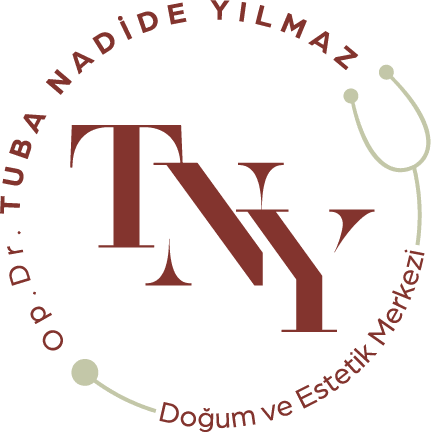Understanding the Importance of Early HIV Diagnostic Testing
HIV continues to be a major health problem in the medical world. Early diagnosis plays a critical role in improving the quality of life of HIV-positive individuals and preventing the spread of the disease. In this first part, we will explore the importance of HIV infection and what this serious threat is.
The Vital Importance of Early HIV Diagnosis
Early HIV diagnosis increases a person's chances of starting appropriate treatment once they know they have the virus. Early diagnosis helps to better protect a person's immune system. This helps the patient live a longer and healthier life. Also, starting treatment early for someone with HIV reduces the risk of transmitting the virus to others.
Dangerous Threat: HIV Infections
HIV is a virus that targets the human immune system and can cause serious health problems if left untreated. If left untreated, an infected person can progress to AIDS (Acquired Immune Deficiency Syndrome). AIDS is a condition that makes the body vulnerable to infections and cancers.
An Overview of Early HIV Diagnostic Testing
In this series of articles, you will learn more about the HIV early detection test (Early HIV Diagnostic Test). The Early HIV Diagnostic Test offers an approach that is different from traditional HIV tests and helps detect the early stages of HIV. Our team of experts, led by Op. Dr. Tuba Nadide Yılmaz, will discuss in detail how this test works and who it is suitable for.
Early HIV diagnosis is important to protect the health of individuals and reduce the spread of HIV in the community. This series of articles aims to contribute to the understanding of this important issue by presenting basic information about HIV. In the following sections, we will discuss in more detail the worldwide impact of HIV, its prevalence in Turkey and the critical role of early diagnosis.
HIV: The Invisible Epidemic
HIV is a virus that poses a serious threat to health worldwide. In this chapter, we will examine the global impact of HIV and its prevalence, particularly in Turkey. We will also emphasize the importance of timely diagnosis and the critical role of early detection.
The Global Impact of HIV
HIV (Human Immunodeficiency Virus) is a type of virus that affects millions of people worldwide. It targets the immune system and can lead to serious health problems if left untreated. AIDS (Acquired Immunodeficiency Syndrome) is a condition caused by the progression of HIV infection. AIDS makes the body vulnerable to infections and cancers.
HIV has a high transmission potential and threatens communities around the world. The number of people living with HIV is increasing every year, making early diagnosis and treatment even more critical.
HIV Prevalence in Turkey
Turkey is not vulnerable to HIV infections. HIV is an ongoing threat in Turkey. Studies on HIV prevalence in Turkey show the importance of this issue. HIV cases are not limited to big cities, so awareness of the threat needs to be raised across Turkey.
The Critical Role of Timely Diagnosis
HIV is a treatable condition when diagnosed early. Early diagnosis protects an individual's immune system and prevents the disease from progressing further. Therefore, early diagnosis of HIV is vital to protect the health of individuals and limit the spread of HIV in the community.
Our team of experts, led by Op. Dr. Tuba Nadide Yılmaz, will examine the global impact of HIV and HIV prevalence in Turkey in more detail and explain why timely diagnosis is so important. Early diagnosis in the fight against HIV is a protective step against the danger.
The Challenge of Delayed HIV Diagnosis
Delayed diagnosis of HIV infection can lead to serious health problems. Many people do not know they have HIV because they have mild or no symptoms. This leads infected people to transmit the virus to others without realizing it. Early diagnosis is key to breaking this cycle.
Consequences of Delayed Diagnosis
Delayed HIV diagnosis weakens a person's immune system and allows the disease to progress further. As a result, individuals are at risk of more health problems and treatment can become more complicated. Furthermore, late diagnosed HIV cases contribute to the spread of the virus in the community.
HIV Early Detection Test Introduction
The HIV Early Detection Test offers a solution to overcome these problems. This test offers a different approach to traditional HIV tests. It helps detect the early stages of HIV and thus increases the opportunity to start treatment early. This helps individuals live healthier lives and reduce the risk of transmitting the virus to others.
Our team of experts led by Op. Dr. Tuba Nadide Yılmaz will explain in more detail how the HIV Early Detection Test works and why early diagnosis is important. HIV diagnosis is the cornerstone of improving the quality of life of people living with HIV and reducing the spread of HIV in the community.
Benefits of Early HIV Diagnosis
Early HIV diagnosis has many positive impacts. In this section, we explore the impact of early HIV diagnosis on health outcomes, preventing the spread of infection, reducing the stigma associated with HIV diagnosis and its cost-effectiveness.
Improved Health Outcomes
Early diagnosis of HIV increases the likelihood of starting treatment early. Early treatment protects the immune system and prevents the disease from progressing further. This helps people with HIV live longer and healthier lives. In addition, early treatment reduces the risk of complications related to HIV infection.
Contamination Prevention
HIV can be transmitted from one person to another through blood, sexual contact or shared injection needles. Individuals who are diagnosed and treated early significantly reduce the risk of transmitting the virus to others. This helps to keep the spread of HIV in the community under control.
De-stigmatization
An HIV diagnosis can sometimes lead to stigmatization and discrimination. However, early diagnosis helps individuals to receive treatment in an open and informed way and reduce the risk of transmitting the virus to others. This allows people living with HIV to be less stigmatized and more supported in society.
Cost Effectiveness
Early diagnosis of HIV offers a cost-effective approach. Individuals diagnosed early experience fewer complications, resulting in a lower burden on health services. In addition, more advanced stages of HIV are generally more costly to treat. Early diagnosis reduces health expenditure and results in long-term savings for society.
Our team of experts, led by Op. Dr. Tuba Nadide Yılmaz, will explain in more detail how early diagnosis of HIV contributes to health outcomes, prevention of HIV transmission and reduction of stigma. Early HIV diagnosis positively impacts the health of individuals and society.
Who Should Consider HIV Early Detection Testing?
The HIV Early Detection Test is an important tool for early detection and treatment of HIV infection. But who should consider this test? In this section, we explore the groups of people who are recommended to consider HIV Early Detection Testing and why it is important.
Individuals at High Risk
Individuals at high risk of HIV infection should consider this test. Groups at high risk may include:
- Individuals with multiple sexual partners
- Those who have unprotected sex
- Have an HIV-positive partner
- Drug users using injection needles
- Users of shared injection equipment
These people should have a regular HIV Early Detection Test because being at high risk increases the risk of infection.
Routine Tests for Everyone
HIV Early Detection Testing is recommended not only for individuals at high risk, but also for the general population. This is because HIV infection can progress silently until symptoms reach a certain stage. Therefore, many people with HIV are unaware that they have it.
Routine HIV testing helps catch the early stages of infection and increases the opportunity to start treatment early. This improves health outcomes and reduces the risk of transmitting HIV to others.
The Role of Health Service Providers
Healthcare providers play an important role in considering HIV Early Detection Testing. These professionals should assess individuals' risk factors and recommend testing when necessary. They should also explain test results and help them cope with positive results.
Op. Dr. Tuba Nadide Yılmaz and her team will explain in more detail who the HIV Early Detection Test is important for. HIV testing is an important tool for early diagnosis and treatment of infection and helps improve the overall health of the community.









